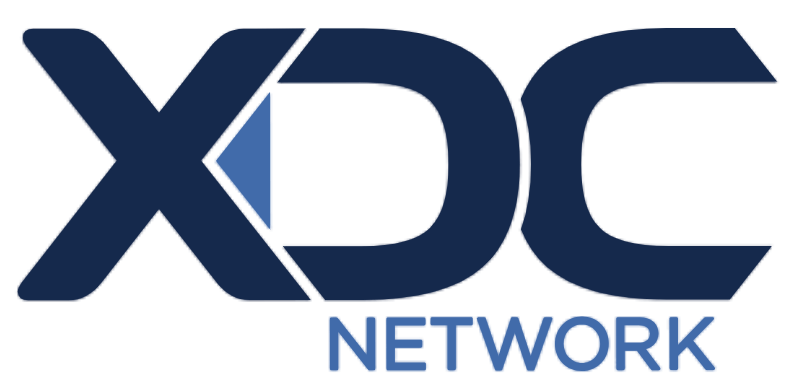Tether (USDT), one of the most widely used stablecoins in the cryptocurrency market, stands to gain significantly if the U.S. Senate passes the GENIUS Act (Generating Early New Innovation in the United States Act). This legislative proposal, which aims to establish clearer regulatory frameworks for stablecoins, has been a topic of considerable debate within both the crypto and traditional financial sectors. If approved, the GENIUS Act would provide the regulatory clarity that stablecoin issuers like Tether have long sought, potentially offering the company significant advantages in terms of legal standing, market expansion, and institutional adoption.

The GENIUS Act: What Is at Stake?
The GENIUS Act was introduced in response to the growing use of stablecoins in the digital economy, as well as concerns surrounding their potential to disrupt the existing financial system. Stablecoins, such as Tether, are digital assets pegged to the value of a fiat currency, typically the U.S. dollar. Their stability makes them an attractive option for users who wish to avoid the volatility associated with other cryptocurrencies like Bitcoin or Ethereum. Stablecoins are used for a wide range of applications, including trading, remittances, lending, and payments.
The primary objective of the GENIUS Act is to create a comprehensive regulatory framework for stablecoins, ensuring that they are subject to appropriate oversight without stifling innovation. The legislation proposes setting clear guidelines for the issuance, reserves, and operational standards of stablecoin issuers, creating a more transparent and predictable environment for both users and market participants.
For Tether, which issues the most widely circulated stablecoin in the world, the passing of the GENIUS Act could provide several key benefits, ranging from legal certainty to a potential increase in institutional adoption.
Legal Clarity and Enhanced Trust
One of the most significant advantages Tether would gain from the GENIUS Act is legal clarity. Currently, the stablecoin industry operates in a regulatory gray area. While stablecoins like USDT are widely used and accepted, the absence of clear regulatory guidelines has made issuers and users wary of potential legal challenges. Tether, in particular, has faced criticism and scrutiny regarding its reserve backing, transparency, and compliance with anti-money laundering (AML) and know-your-customer (KYC) regulations.
The GENIUS Act seeks to address these concerns by outlining clear regulatory requirements for stablecoin issuers, including regular audits of reserves and compliance with stringent consumer protection standards. If Tether becomes subject to these regulations, it would likely improve its credibility and public perception, especially among institutional investors who have been hesitant to fully embrace the stablecoin due to concerns over its reserve backing. The act would also create a level playing field for all stablecoin issuers, providing Tether with the opportunity to further solidify its dominance in the market.
Increased Institutional Adoption
Another major benefit for Tether if the GENIUS Act is passed is the potential for increased institutional adoption of USDT. Institutional investors, including banks, hedge funds, and asset managers, have been slow to engage with the cryptocurrency market due to regulatory uncertainty and concerns about the legitimacy of certain digital assets. However, with the passage of the GENIUS Act, Tether could become a more attractive option for these entities, as they would have greater confidence that the stablecoin complies with regulatory standards.
Tether’s popularity among institutional investors has been growing steadily, particularly in markets such as decentralized finance (DeFi), where USDT is frequently used as a liquidity provider and collateral in lending protocols. As the regulatory environment becomes more transparent, institutions may feel more comfortable using Tether for a wider range of financial products and services, further driving its adoption.
Greater Market Expansion
The GENIUS Act could also help Tether expand its market share by fostering greater acceptance of stablecoins in the broader financial ecosystem. As more businesses, especially those involved in e-commerce and cross-border payments, adopt stablecoins for transactions, Tether is well-positioned to benefit from the increased demand for USDT. By having a clear regulatory framework in place, businesses may be more willing to integrate stablecoin payments into their operations, especially for international transactions, where the traditional banking system often incurs high fees and delays.
Furthermore, as the U.S. government provides more clarity on how stablecoins should be treated, other countries may follow suit with their own regulatory guidelines. This global trend could further bolster Tether’s position in the market, as the stablecoin is already one of the most widely used in the world. A globally accepted regulatory framework would make it easier for Tether to operate across borders, increasing its usability in regions with less developed banking infrastructure and where the demand for digital currency-based payment systems is growing rapidly.
Potential Challenges and Regulatory Oversight
While the GENIUS Act offers significant benefits, it also introduces a level of oversight that Tether must navigate carefully. The proposed regulations would require stablecoin issuers to hold sufficient reserves to back their coins and undergo regular audits to ensure compliance with reserve requirements. This could lead to more stringent reporting and disclosure requirements for Tether, which may increase operational costs and complexity. Additionally, any failure to meet these requirements could result in legal repercussions, including penalties or restrictions on issuance.
There is also the potential for increased competition from other stablecoin issuers that may benefit from the same regulatory clarity. While Tether is the market leader in terms of circulation, it faces competition from other stablecoins like USDC, BUSD, and DAI, which could use the regulatory framework to improve their own offerings and gain market share. As the stablecoin landscape continues to evolve, Tether will need to maintain its competitive edge by ensuring that it meets all regulatory requirements and continues to innovate in response to changing market dynamics.
Conclusion
In summary, the passing of the GENIUS Act could provide Tether with a significant opportunity to strengthen its position in the cryptocurrency market. The act’s regulatory clarity would likely improve the credibility of stablecoins, increase institutional adoption, and open new avenues for market expansion. However, Tether must also be prepared to comply with the new regulatory requirements and navigate the potential challenges that may arise. If successful, Tether could cement its role as a key player in the future of digital finance, benefiting from both the increased trust of users and a more favorable regulatory environment.
Disclaimer: This article is for informational purposes only and is not investment advice. Investors should research carefully before making any decisions. We are not responsible for your investment decisions.
















